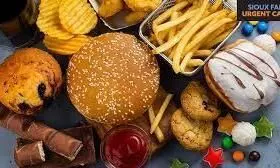
UK to ban junk food ads to combat rising childhood obesity
text_fieldsImage for representation only
The UK government has announced a ban on junk food advertising online and on daytime TV, aimed at addressing the growing issue of childhood obesity.
The measure, set to take effect on October 1, 2025, was a key part of the Labour Party manifesto that led to Keir Starmer's sweeping election victory in July.
This initiative follows Starmer's pledge to introduce comprehensive reforms to the National Health Service (NHS), with a focus on preventive care.
Junior Health Minister Andrew Gwynne, in a statement to parliament, highlighted the concerning rates of childhood obesity in England. He revealed that over 20% of children are either overweight or obese by the time they enter primary school at ages four or five. This figure rises to more than one-third by the time they leave at age 11.
“These restrictions will shield children from being exposed to unhealthy food and drink ads, which, according to evidence, shapes their dietary preferences from an early age,” Gwynne said.
The new regulations will prohibit advertisements for foods high in fat, sugar, or salt before 9:00 pm on television and entirely online. Initially backed by the Conservative Party under Boris Johnson, the ban was delayed to give manufacturers more time to adjust.
Despite some support, the move has drawn criticism from the political right, with detractors labeling it an infringement on personal freedom. The Daily Mail dubbed the policy "Nanny Starmer's ban on junk food ads," criticizing it as excessive government control.
In addition to the ad ban, the Labour government plans further measures to ease pressure on the NHS, such as prohibiting high-sugar and caffeine energy drinks for those under 16.
Children's advocacy group, The Centre for Young Lives, called on the government to ignore the "nanny state" critiques and push ahead with stronger initiatives, including expanding sugar taxes, banning energy drink sales to minors, and introducing supervised toothbrushing programs in schools.























